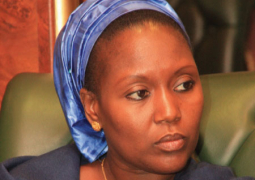Over 28 African Ministers in charge of gender affairs and high-level participants from over 43 African countries are today gathering in Banjul for the 8th African Regional Conference on Women (Beijing +15).
This is no doubt of paramount importance to Africa's future development as it will accord key stakeholders in the region the opportunity to take stock of the progress achieved in Africa since the Beijing Summit on Women fifteen years ago, and to identify pending challenges for the implementation of the 12 critical areas of the Beijing Platform for Action.
The landmark conference, among others, "seeks to review the evaluation report that the ECA has prepared based on the inputs received from the member states; identify key actions that Africa needs to focus on in the next five years, in time for the second decade review of the BPFA; and define Africa's input into the global review of the BPFA, due to take place at the Commission on the Status of Women in New York in March 2010."
With these objectives in mind, stakeholders should also consider in their deliberations some key reasons for addressing women empowerment throughout the continent. These, among others, include the elimination of systemic inequality; enhance women's contribution to national material resources and food poverty reduction; promote economic growth; foster self-reliance as actors, not dependents in national development; encourage full participation in the democratisation process; facilitate access to development resources and services; and provide social and economic skills acquisition opportunities and facilities for effectiveness and sustainability in development activities.
One of the major highlights of this African Regional Conference on women will be the launch by the ECA of its African Women's Report 2009 (AWR), which is its flagship publication on gender issues in Africa.
The AWR 2009 is unique in its purpose as it focuses on the use of an Africa specific tool that was recently developed by the ECA, the African Gender and Development Index (AGDI)). This tool aims to enhance the ability of African countries to monitor and report on their performance in the implementation of global and regional commitments, and instruments on the advancement of women. African women have over the years struggled to make visible the root causes of gender inequalities and the disempowerment of women.
We, therefore, hope and pray that stakeholders will agree on best ways to use their presence in influencing the outcomes of the experts and ministerial meetings, address increasing problems faced by African women, and ensure more empowerment.



